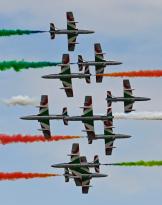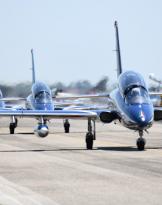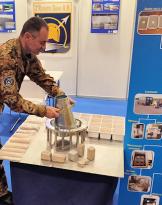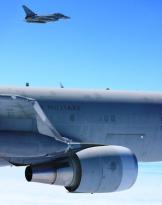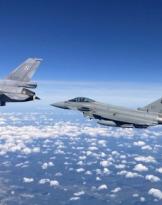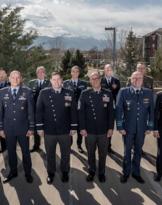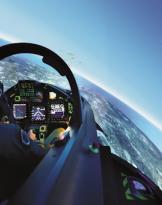The course, unique at national level, was created at the request of the Department of Public Health and Innovation of the Ministry of Health to train and update health and safety personnel on the subject, with particular reference to the problems connected to the management of possible cases in the airport.
Today also the Minister of Defense, the Hon. Roberta Pinotti and the Chief of Staff of the Air Force, Pasquale Preziosa Air Force General.
The minister, after having met the over 80 military and civilian attendants from all the main realities that operate in the sector at national level, wanted to deepen his knowledge of the course program, unique at national level. Subsequently, Minister Pinotti met the numerous journalists present, both national and international, declaring: 'We are not doing this work because there is a particular risk now for Italy. We have been working on this ability since 2005, then we encouraged in 2009 by making a protocol with Spallanzani. This is because as armed forces we had asked ourselves the question if we have a risk and contamination situation, how do we manage to transport safely? So he leaves before the emergency. We have prepared for difficult eventualities, the armed forces in general and the air force in particular have worked for their own needs but these capabilities that we have created for us must be made available to all ".
 "It is a technology, a capacity born in the military field to deal with infectious emergencies in 2005, and today we find it for a use that will mainly concern the Ebola part - explained General Pasquale Preziosa - We take into account that in the past transports were high isolation also for the transport of patients suffering from TB or other types of haemorrhagic fever. We manage to have the treatment during flight hours to reach the place where the patient must be treated. All this system must therefore be connected to health systems. In particular in Rome there is Spallanzani. The training courses are held regularly. It is that synergy that the institutions have to work together to produce a result. This is a great capacity of the whole of Italy: industry, part institutional and operational part ".
"It is a technology, a capacity born in the military field to deal with infectious emergencies in 2005, and today we find it for a use that will mainly concern the Ebola part - explained General Pasquale Preziosa - We take into account that in the past transports were high isolation also for the transport of patients suffering from TB or other types of haemorrhagic fever. We manage to have the treatment during flight hours to reach the place where the patient must be treated. All this system must therefore be connected to health systems. In particular in Rome there is Spallanzani. The training courses are held regularly. It is that synergy that the institutions have to work together to produce a result. This is a great capacity of the whole of Italy: industry, part institutional and operational part ".
The course sees the decisive contribution of the Spallanzani Institute for Infectious Diseases: '' The course is the result of 10 years of work between us and the military air force. Today - says Giuseppe Ippolito, scientific director of Spallanzani - Italy is at the forefront in the fight against infectious diseases ''.
The course - organized by the Air Force Health Service, one of the leading international air forces in the field of air transport in biocontainment - is attended by over 80 operators, including military and civilians, from all the main companies operating in the sector; among the visitors, in addition to representatives of the same ministry of health and of the national institute for infectious diseases "Lazzaro Spallanzani", there is staff of the Italian red cross, ARES 118 Lazio, 7th NBC regiment "Cremona", volunteer corps of the Sovereign Military Order of Malta, Italian Army, Navy, Financial Guard, State Police and Carabinieri.
The program of the course, coordinated and approved by the Ministry of Health, in addition to theoretical notes on the concept of biocontainment and on the methods of transmission of highly infectious diseases, has a highly practical connotation, with the aim of sharing the operational and training experiences gained by the air force in the last decade in the sector, as well as consolidating a standardization process on procedures related to the management of emerging diseases such as the current case of Ebola in the African continent. As part of the course, for example, simulations were carried out for the establishment of a sanitary cordon in the airport area and for emergency transfer with special avio-transportable isolators of highly contagious patients.

Source: AM, Public Information Office - Rome - May. Davide Tortora


